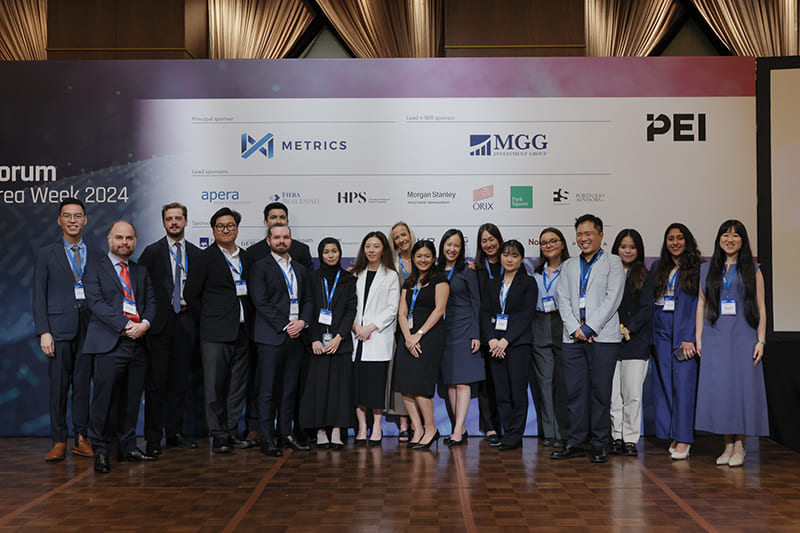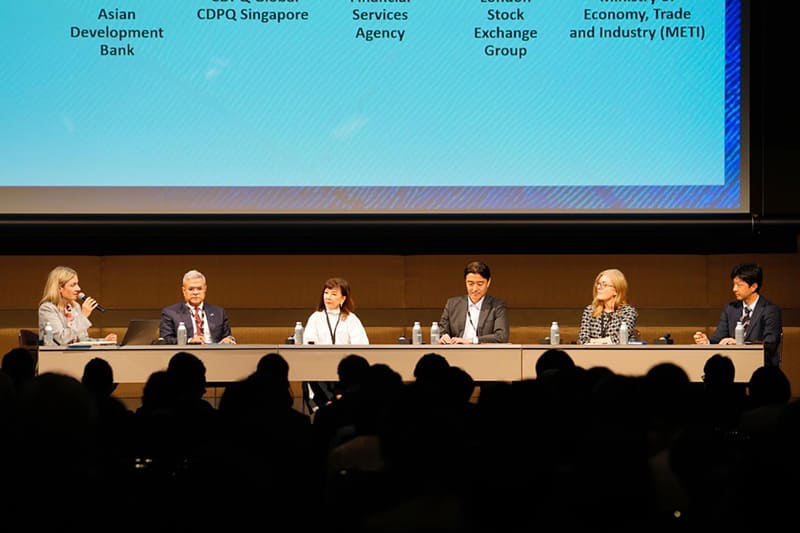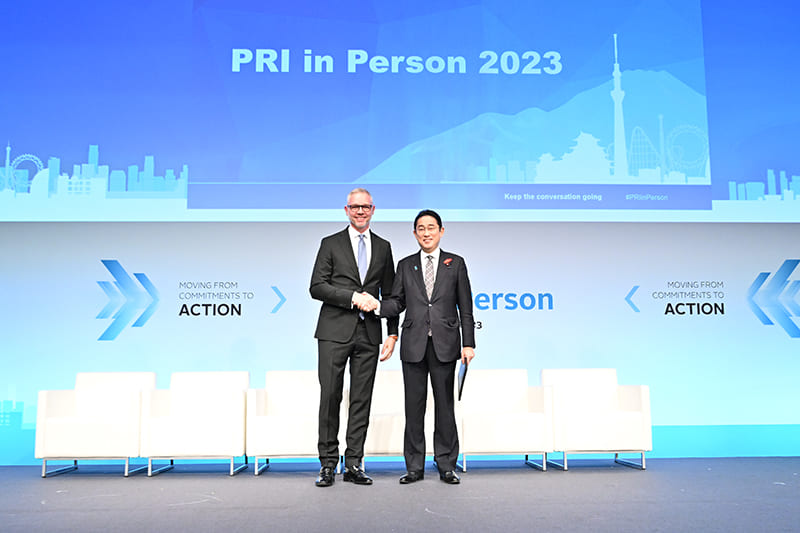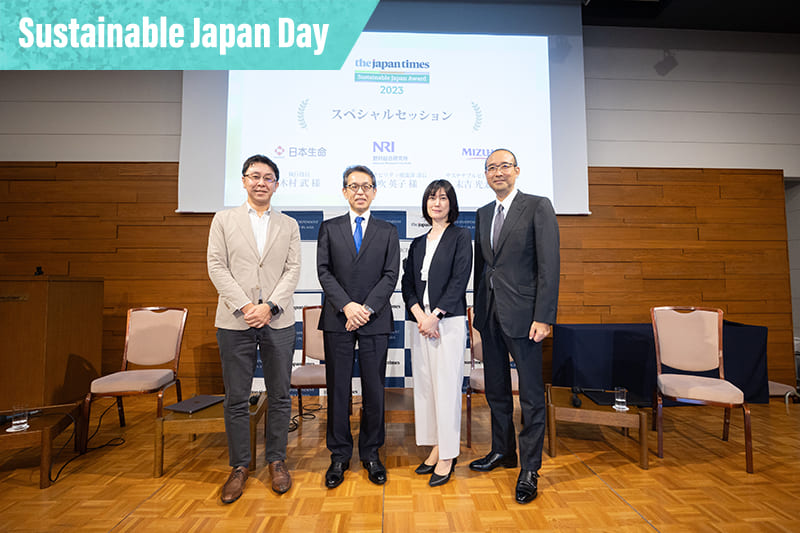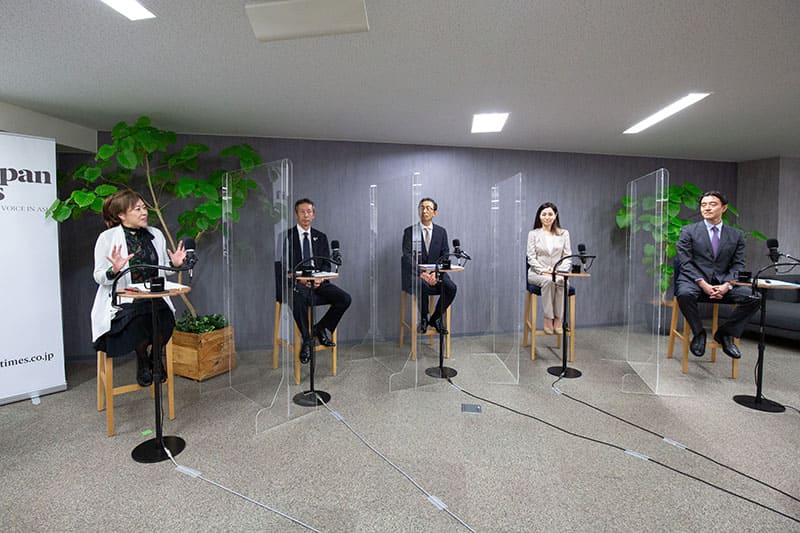January 06, 2025
2025: The state of work toward a sustainable society
In October 2020, in search of a new normal during the COVID-19 pandemic, The Japan Times launched Sustainable Japan to convey what is happening in Japan regarding sustainability and how Japan can contribute to the realization of a sustainable society.
Starting with key people who have been active in Japan and overseas since 2018, activities of the Japan Times ESG Consortium and Satoyama Consortium have been disseminated overseas by networking companies and organizations that have been active in various ways toward the realization of a sustainable society. Combining these, The Japan Times launched the new Sustainable Japan Network in June 2021.
Promoting sustainable finance
KATSUNOBU KATO
MINISTER OF STATE FOR FINANCIAL SERVICES
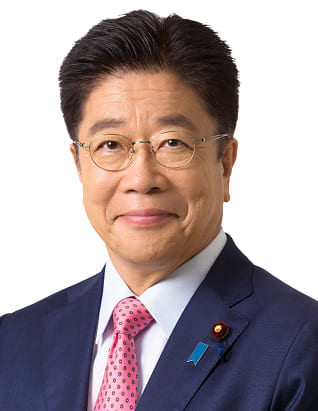
I would like to offer New Year’s greetings to the readers of The Japan Times.
The Japanese economy is showing signs of recovery. Nominal GDP and capital investment exceeded ¥600 trillion ($3.8 trillion) and ¥100 trillion, respectively, and wages rose at the highest rate in 33 years.
The government will implement initiatives aimed at ensuring a transition to a growth-oriented economy driven by wage hikes and investment, aiming to seize this opportunity to overcome deflation so that each and every citizen can directly feel that their wages and income are increasing.
For our part, we at the Financial Services Agency aim to assist Japan’s transition to such a growth-oriented economy from a financial perspective. And we think that one important initiative for achieving sustainable growth is the promotion of sustainable finance, which encourages the transition to new industrial and social structures that realize sustainability by conducting investment and lending that consider environmental and social issues such as climate change.
In particular, as part of measures to address climate change, we aim to realize more than ¥150 trillion of public and private investments over 10 years to achieve carbon neutrality by 2050. In February 2024, the government began issuing Japan Climate Transition Bonds, the world’s first government-labeled transition bonds. Financial institutions play an important role toward decarbonizing the overall Japanese economy. We aim to promote transition finance, which provides funds to companies making steady efforts toward decarbonization. We also are working toward achieving global decarbonization while capturing growth opportunities by aiming to form specific methodologies and real cases of transition finance in Asia, which accounts for as much as half of the global total of greenhouse gas emissions. We aim to do this through the Asia GX Consortium (the GX stands for “green transformation”), an initiative led by the FSA and the ASEAN financial authorities.
Another thing that is important in order to support companies engaging in innovation and transformation that contribute to solving social or environmental issues — including not only those related to climate change but also social issues such as health care and declining population — is impact investment, which intends to realize social or environmental impacts while securing financial returns at the same time.
In promoting impact investment, it is important to share and accumulate knowledge and ideas that are effective in carrying out investments while taking into consideration the diversity of market participants. With this in mind, we launched the Impact Consortium, which brings together wide-ranging parties from both the public and private sectors. The participants are currently discussing case studies of local initiatives, as well as investment methods.
Sustainable finance, which supports corporate efforts to transition to new industrial and social structures in order to realize a sustainable economy and society, is growing in importance in Japan and elsewhere especially as decarbonization efforts are stepped up around the world.
I have great hopes for further efforts by market participants in Japan and abroad. For our part, we at the Financial Services Agency will work to revitalize Japan’s financial market, aiming for a financial administration that earns the trust of the Japanese people.
Again, I would appreciate your understanding and cooperation in the new year.
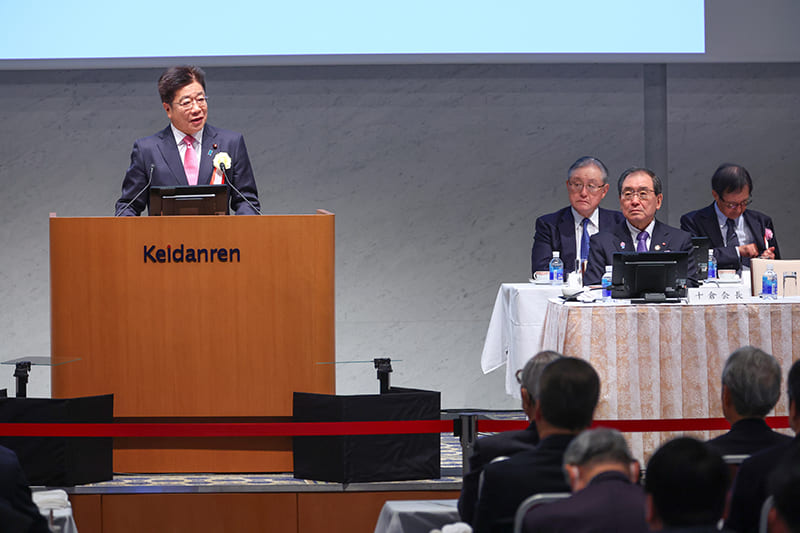
Climate change efforts for 2025
KEIICHIRO ASAO
MINISTER OF THE ENVIRONMENT OF JAPAN

Happy new year to the readers of The Japan Times! On celebrating the new year of 2025, I would like to share my thoughts on promoting measures against climate change.
Last year reportedly was the hottest year on record, and a sense of crisis has risen to unprecedented levels about climate change, as we are now directly feeling the increased risks of disasters and heat stroke caused by extreme weather.
To achieve the Paris Agreement goal of limiting the temperature increase to 1.5 C above preindustrial levels, significant emission reductions are required at the global level, and the global community must unite in working to achieve them even amid a rapidly changing international situation.
It was against this backdrop that the COP29 annual conference was held in Baku, Azerbaijan, late last year, during which I participated in many ministerial meetings and actively had bilateral talks.
Specific achievements made at this conference include, in the area of climate finance, a new target for financing to developing countries of at least $300 billion annually by 2035. We also agreed to call on all actors to work together to enable the scaling up of financing to developing countries for climate action from all public and private sources to at least $1.3 trillion per year by the year 2035, and that from this total annual amount, funds of $300 billion will be contributed by developed countries. In addition, we achieved full operationalization of Article 6 of the Paris Agreement, which calls for international cooperation in implementing reductions and other measures.
This year, COP30 is scheduled to be held in Belem, Brazil, and ahead of the event, countries are being called on to submit their next reduction targets to the United Nations by February. In Japan, we aim to work out our next reduction target and revise our global warming measures to achieve it, aiming to ensure we achieve net-zero greenhouse gas emissions by 2050.
The Japanese government aims to take into consideration scientific findings and past reduction efforts to decide on the next reduction target while making sure that we can simultaneously achieve decarbonization, a stable energy supply and economic growth.
To reduce emissions, we need to not only set a target but also steadily implement measures to achieve it. All parties involved need to put in effort if we are to achieve net-zero emissions by 2050. For its part, the Ministry of the Environment especially aims to put effort into decarbonizing local communities and people’s daily lives. Specifically, we aim to work with local governments to promote the introduction of renewable energy sources that benefit and coexist with local communities, and contribute to regional revitalization by working on industrial promotion initiatives and strengthening disaster-prevention capabilities.
In addition, we will work to ensure that people live with a sense of well-being by providing support for decarbonizing houses and buildings, electrifying commercial vehicles, etc. Furthermore, we aim to promote development of new technologies, including artificial photosynthesis and perovskite solar cells.
To achieve the global goal of limiting the temperature increase to 1.5 C above preindustrial levels, it is crucial to take collective actions to reduce emissions in Asia and the rest of the world, not only in Japan.
Based on the achievements of COP29, Japan aims to call on all countries to steadily reduce greenhouse gas emissions, expand and step up efforts for the Joint Crediting Mechanism and help other countries establish high-integrity carbon markets and bring the Asia Zero Emission Community initiative to fruition.
This year again, we will do all we can to further promote climate change measures across the globe.

